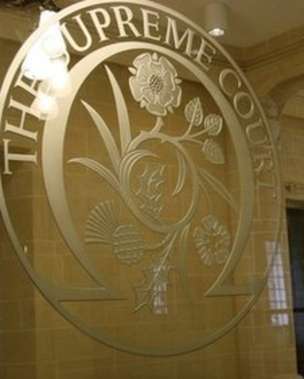
On appeal from: [2016] EWCA Civ 22
An appeal has been unanimously allowed by the Supreme Court in a case that considered whether it was contrary to the ECHR to deport the appellant on the grounds that he was a ‘foreign criminal’. The appellant, Mr Johnson, was born in Jamaica in 1985 and moved to the UK aged four. He is the illegitimate child of a British citizen , born prior to the legal change which saw automatic citizenship granted to all children of British citizens where a child’s parents were unmarried and the mother was not a British citizen.
In 1992 Mr Johnson was granted indefinite leave to remain in the UK. While changes in nationality law in 2006 entitled illegitimate children to British citizenship, this did not operate retrospectively. It had been possible for Mr Johnson to apply for citizenship where paternity could be proved and good character could be demonstrated, but no application was ever made.
In 2008, Mr Johnson was convicted of manslaughter and sentenced to nine years’ imprisonment. In 2011, the Home Secretary issued a deportation order on the grounds that he was liable to automatic deportation as a ‘foreign criminal’ under the UK Border Act 2007, s 32(5).
Mr Johnson argued that his deportation would be contrary to his right to family life under ECHR, art 8 and would amount to unlawful discrimination under art 14, as he would not have been liable to deportation if he had not been illegitimate. He also challenged the Secretary of State’s finding that his human rights claim was clearly unfounded, as this removed his right of appeal in the UK against this decision.
Lady Hale gave the only substantive judgment, with which the other justices agreed. It was held, unanimously, that the appellant’s liability to deportation as a result of his illegitimacy was unlawful discrimination in breach of the ECHR. The Supreme Court quashed the Secretary of State’s certification that his claim was unfounded and made a declaration under the Human Rights Act 1998, s 4 that the ‘good character’ citizenship requirement was contrary to ECHR.
The court found that denial of citizenship could fall within the ambit of art 8, where it had an important effect on a person’s identity. This would trigger art 14. Birth outside wedlock was a ‘status’ for the purposes of art 14, and there was no justification for treating Mr Johnson differently due to the circumstances of his birth.
For judgment, please download: [2015] UKSC 56
For Court’s press summary, please download: Court’s Press Summary
For a non-PDF version of the judgment, please visit: BAILII





Be the first to comment